Amidst the hundreds of rescue workers searching at Ground Zero in the months after the 9/11 attacks, many were fathers looking for their sons. Some were firefighters still on the job, some retired, and some never officially with the Department, but all joined in the search for their boys. This is a story about five of them.
As you approach the church, you see the fire trucks lined up on both sides of the street. Their ladders, extended and crossed in the air, form an arch from which the American flag hangs waving in the breeze. A tradition, usually saved for a small-town Fourth of July picnic, has now become a symbol of respect, and an all too common sight as a funeral cortege passes underneath, and yet another fallen hero is laid to rest.
People gather on the church steps. They’ve seen each other too often of late. The ceremonial unit gives the signal and the formation takes place. The Honor Company lines up next to the fire chiefs who are to the right of the dignitaries led by the mayor and fire commissioner. Last-minute instructions are whispered to the color guard to hold the tips of the flags so they don’t flap in the breeze. An eerie quiet descends upon the crowd. In the distance, the steady beat of muffled drums is heard as the pipe band approaches. Someone calls out “Attention” and a crisp salute ensues. The caisson pulls into view and the pallbearers gently lower the casket as the family emerges from cars and follows the flag-draped coffin into the church.
There is another stirring element in the procession: the honor guard of fathers who lost sons. Most are dressed in Fire Department uniforms, some wear suits. They all have strained eyes from tears shed and strained backs from the recovery effort. They knowingly look at each other and affirm the pledge they silently made so many months ago. “We’ll be there for each other until the end…we’ll do this together.”

They had come together at the worst imaginable time – searching for their missing sons at Ground Zero – and they were here now to see another father lay his son to rest.
Dennis O’Berg, a lean, elegant and quiet Fire Lieutenant from L114, was working in Brooklyn on September 11. As he raced through the streets on his way to the Trade Center, he thought about how to keep his men safe. He also thought of his son, young Dennis – less than a year on the job and responding in from L105, a firehouse closer to Manhattan. When O’Berg arrived at the site, he quickly learned that all the men from L105 were missing.
As the tragedy began to sink in, the resourceful fire officer, who had been in countless tough situations, was so shattered he could barely put one foot in front of the other.
The lieutenant had been extraordinarily close to his son. When young Dennis and his sister were kids he’d tailored his schedule to play ball with and read to them. When he grew up, Dennis Jr. trained as a CPA. But when he married his longtime girlfriend, Christine, he realized that if he was going to start a family, he wanted to raise them the way he was raised, and that meant making some changes in his life.
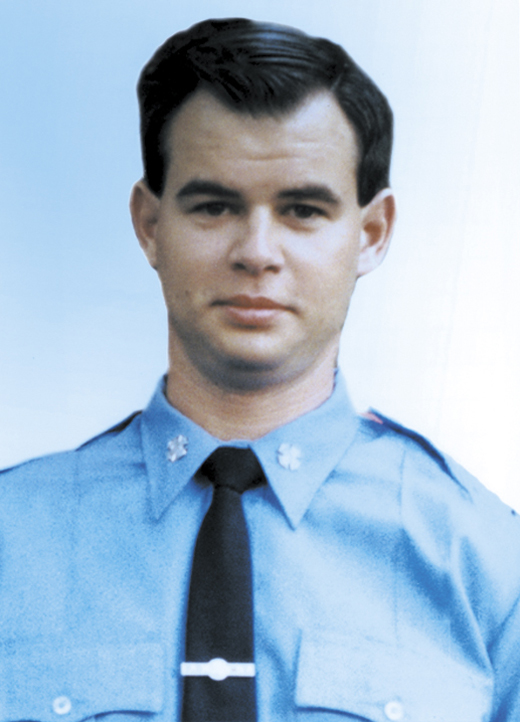
His friends got a simultaneous e-mail in February of 2001: “As of 1:00 today I have joined the New York City Fire Department.” Nobody was more proud than his father.
September 11 was Lieutenant O’Berg’s last tour of duty. He retired from the department two days later. For weeks he and his wife, Dorothy, couldn’t bear to even see friends, they just clung to each other, trying to find a way to go on. But as time wore on, the gnawing feeling of a need to be near his boy kept inching into his mind. He put on his gear and began to go to the site every day. He was not alone.
Bill Butler, a retired captain from E216, was there. He was looking for his son Tom, who had driven Squad One through the Battery Tunnel on that fateful morning.
Two days earlier, the Butler family had gathered to christen Patrick, the third child of Tom and his wife, Martha. Following the ceremony, Tom had turned to his father and said, “Thanks, Dad, for doing the baby’s room. Thanks for everything you’ve done.” That was the last time Bill Butler spoke to his son.
Tom had been a police officer before he joined the Fire Department in 1989. He was also a naval reservist, a gunner’s mate, who strongly believed in service to his country. He met Martha while serving as a patrol officer in Richmond Hill, Queens and quickly fell in love. They married, bought a house down the street from his parents, and he kept busy with a second job as a Bay Constable in Smithtown. They remained close to Tom’s siblings, two brothers and a sister, and settled into a life centered on raising their children.
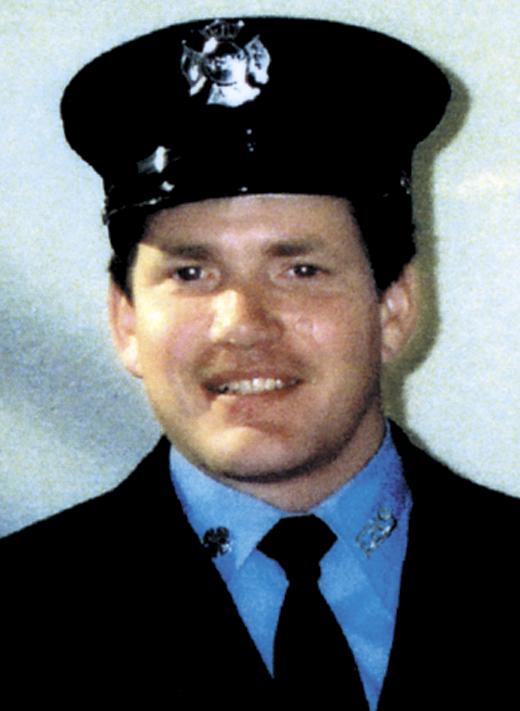
Retired from the FDNY since 1993, Bill Butler was working at the Smithtown Public Safety Office when he heard about the planes hitting the towers. Knowing Tom was working, he headed home to man the phones and be with his wife Peg, and family. Word began to drift in about the scale of the calamity, and Bill knew in his heart that Squad One would be in the middle of it.
Bill’s other son, Stephen, a Port Authority Emergency Services Unit police officer at JFK, was off-duty that morning and arrived at the scene after the first tower collapsed. His partner PAPD officer George Howard was killed. (Howard’s mother, Arlene, presented her son’s badge to President Bush).
By the end of the first week, Bill paid his first visit to Ground Zero. Looking with an experienced eye at the scale of the destruction, he knew what the search-and-recovery people were up against. Weighing the pull to go to the site against the need to be with his family, he remained near home for the next few weeks. In early November, the need to be near Tom became too hard to resist. He started to go to the site every day.
Jack Lynch, from the Bronx and the MTA (Metropolitan Transit Authority), was also at the site every day. He was searching for his boy Michael, a rookie firefighter assigned to E40 near Manhattan’s Lincoln Center.
Lynch, from Tralee, County Kerry, an outspoken Irishman with a brogue as thick as they come and a mind as quick as a rocket, retired from the MTA as a manager in 1998, after 33 years on the job. He raised 10 children in the Bronx, and has been married to his wife and best friend, Kathleen, for 42 years.
Young Michael had joined the Fire Department in November of 1999. He loved the firehouse and his fiancée Stephanie Luccioni. They were to be married on November 16, 2002. On the morning of September 11, he was working at Engine 40.
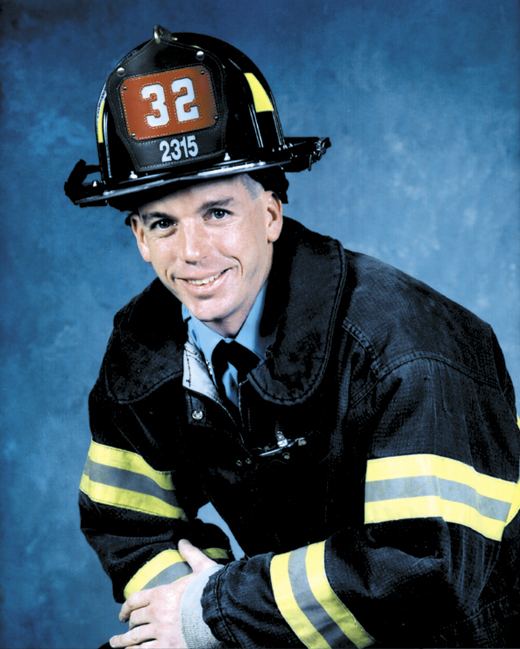
Early TV footage showed some of the first firefighters arriving on the scene. Michael’s mother saw him first. Then the calls started coming in from around the country. “We saw Michael going in. It’s him.” A cameraman for Fox News had shot the footage and Jack tracked him down. They freeze-framed the film and sure enough, there was Michael going into Building 4, heading for the South Tower.
Jack decided that the best chance of finding his boy was to create a timeline. He pinpointed the location where Michael and his company went in, found out the exact time of day, factored in the heavy equipment the firefighters were carrying and other possible delaying variables, and made a reasonable assumption about how far they could have gotten before the towers came down.
Jack figured Michael and the other members of E40 had gone in about five to seven minutes before the collapse. He paced it off with a close friend who works for a major construction finn in Chicago.
Given the time the film was shot and the direction they were moving, the two men reached the same horrifying conclusion: Michael and his company would have been in the lobby or on the lower floors of Tower 2 just as the building came down. Jack felt his heart break as his friend turned to him with tears streaming down his face and mouthed the words, “No hope.”
Having a Rescue Company firefighter for a father elevates the expectation on the son. When Jonathan Ielpi became a firefighter he wanted to go to a busy fire house like the one his father, Lee, a tough and resourceful retired firefighter from Brooklyn’s elite Rescue 2, had served in.
Jonathan started out in E214 in Brooklyn and then got assigned to Squad 288 in Queens. He loved his work, his wife, Yesinia, and the fact that they were raising two active sons in the same town where he grew up. He even volunteered at his local fire company, Vigilant Engine Hook and Ladder in Great Neck, where he became second in command. He was proving to be every bit the firefighter his father was.
On Fathers’ Day in 2001, an explosion occurred during a fire in a hardware store in Astoria, Queens. The blast blew out three brick walls, raining debris down on and trapping four firefighters. Jonathan and Lee Ielpi joined the men digging through the rubble to uncover their fallen brothers. As mortally injured firefighter Harry Ford was pulled out, Jonathan and his father helped Fire Department MD Kerry Kelly to do CPR and place him in the ambulance. Their efforts were captured on the front page of the newspapers.
On the morning of September 11, Jonathan phoned his father and told him to turn on the television. As they watched and spoke on the phone together, the tone alarm went off in the firehouse and Jonathan said, “That’s us. We’re going in.” Lee told him to be careful. He said, “OK, Dad.” That was their last conversation.
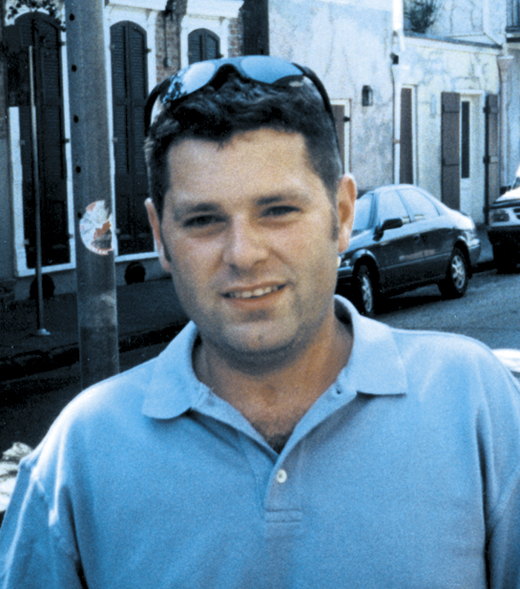
As the situation escalated, Lee knew he had to go down to the site. He and his son Brendan drove in. He saw the conditions at Ground Zero and knew it would take experienced rescuer workers to begin searching for life. Having served in Rescue 2 for so many years, he also knew that the odds were stacked against the Department, because so many of the specially trained Rescue firefighters were among the missing – more then 90 from the Special Operations Command.
With only one word – Jonathan – running through his mind, Lee found Chief Frank Cruthers and told him he wanted to start opening up a passage on the south side so they could get heavy equipment in to move the debris. The chief told him to go ahead. A group of construction workers overheard the conversation, and soon bulldozers, front-end loaders, trucks and backhoes were procured from nearby construction sites.
At one point Lee helped pull what was left of Rescue 2’s equipment out of the way. He looked up and for a moment and was elated when he saw men from Squad 288 coming towards him, but they all lowered their eyes and he knew they were the remaining members of the company coming to search for their lost brothers.
Retired Fire Captain John Vigiano, the legend who beat cancer to come back to the job, was looking for his sons, Joe, a NYPD Emergency Services Unit (ESU) police officer, and John, a firefighter from L132, when he met the other fathers.
On the morning of September 11,Vigiano had gotten a call from son Joe, the ESU officer. Joe was on his way down to the Trade Center. He told his dad to put on the TV. He said it was a plane crash and there was a lot of smoke. John told him to be careful and Joe said, “I will.” Vigiano then called L 132 to talk to his son John, but the company had already left for the site.

Growing up, it had been Joe who wanted to be the firefighter. Instead he became a policeman. He was shot three times, was promoted regularly, and spent all 14 years of his career in love with the job.
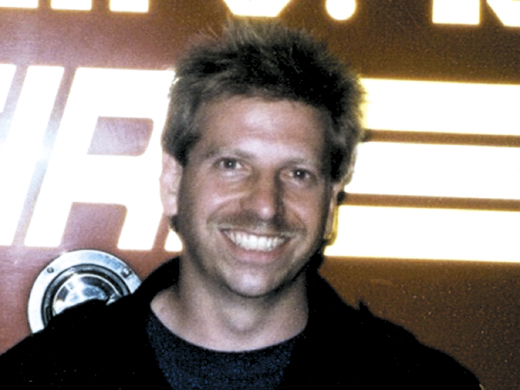
John Jr. had wanted to become the next Donald Trump. He had a keen mind and a huge interest in business. It wasn’t until he witnessed the care and concern the men from Rescue 2 gave his family during his father’s bout with cancer that he decided he was joining the Fire Department. “I want to be like those men,” he told his father. He too loved every minute on the job. Most recently he was poring over books studying for the lieutenant’s exam.
To lose both sons in one day is still incomprehensible to John Vigiano, but he has a glimpse of how they spent their last few moments through the stories he’s heard from others. They were cool, professional, confident, and sure of themselves and their colleagues. He already knew they were loving husbands and caring and involved fathers. “It’s hard to ask for more,” he said.
After the tragedy of 9/11, the Police Department adopted the elder Vigianos and never left their side. John and his wife, Jan, stayed in Manhattan for months. Every day began with a Mass at police headquarters and then John went down to the site. After the first week, John made a promise to Jan that he wouldn’t put himself at risk looking for the boys. He stood like a statue at the edge of the destruction, changing his position four times a day as he followed the sun around the site. People would be working with their heads lowered and look up to see this solitary figure and be reminded of why they were there.
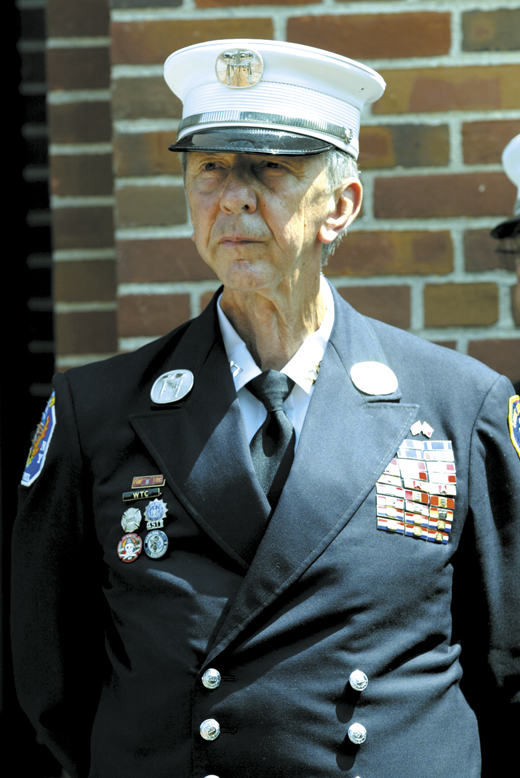
It wasn’t until after the Christmas holidays that Vigiano’s solitary vigil became more interactive. He began to see more of the “Dads” and started to talk to them about their shared situation. They grew as close as they’ve ever been with lifelong friends. All five say there is nothing they wouldn’t do for each other.
“I feel about them [the other fathers] the way I do about lifelong friends. I would trust them with anything,” said Jack Lynch.
Lee Ielpi got the call on December 11. He had just gotten home from the site but he called Brendan, who had graduated from the Fire Academy on November 1, seven weeks after the death of his brother, and they went back in.
“Lee, we’ve got him and he’s in one piece,” he was told when he arrived back down. It was as if a hole in his heart had been filled. Later he said that as a firefighter he was proud of his son. As a father he had hoped all along to get a call saying, “Dad, I was scared, I ran and I’m in the Islands.” He would have loved that call, but he knew that that wasn’t his son. As on so many other occasions, he hoisted the stretcher with the other men and started the long walk up the ramp with Brendan at his side. He had both his sons together for the first time since September 11.
It was Lee who made the call to Jack Lynch at home. “Jack, you better start in. Take your time.” Jack got the family together and headed down with them to Ground Zero. As the excavation work progressed, more and more family showed and when it was time to bring out Michael, Jack said, “I’ll go and get him.” Kathleen said, “We’ll all go.” Jack said, “No you can’t,” and she said, “We’re going.” And they did – mother, father, brothers, sisters, fiancée, and other family members. Lee Ielpi and some of the other fathers also helped carry Michael out. He had been found just 15 feet from where his father predicted he’d be.
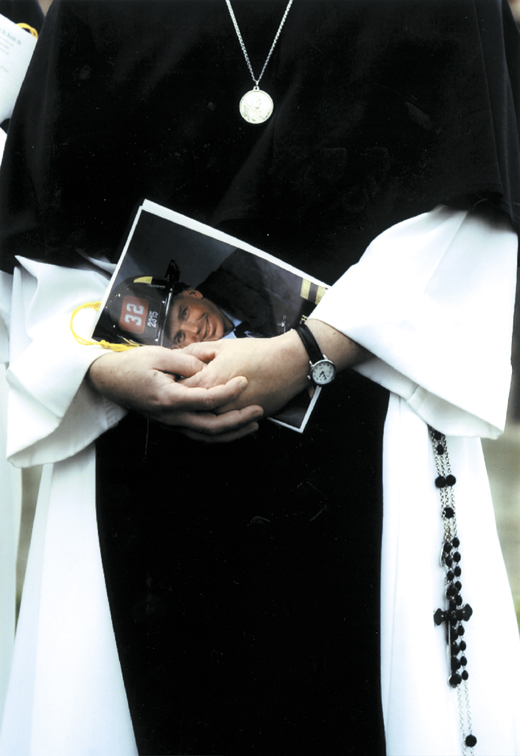
John Vigiano got his son Joe’s body back and still waits for word on identification of John. He collected stories and pictures and will make a book of each son’s life for their kids. He takes his grandchildren to A&W Root Beer for ice cream floats and watches his daughters-in-law display strength he never knew they had.
Bill Butler and his family had a memorial service for Tom on August 17. They had hoped they’d find him but there is no word yet. Bill and his wife, Peg, sold their retirement home in Florida and now plan to help their daughter-in-law Martha raise the kids.
Lee Ielpi has a broken rib from going tubing with his grandson. They hit a wave and both went flying. Ten-year-old Andrew landed on his chest. Lee is serving on family advisory boards and working with the Fire Department to thank people all over the country for their help. Sometime soon he’ll take a day off to spend with his wife, Ann.
Jack Lynch is the vice president of one of the family organizations and an advocate for a memorial that reflects the desires of the relatives. He is tireless in his pursuit of fair treatment for all of the families, and Stephanie, his almost daughter-in-law, is never far from his thoughts.

The O’Berg family had a moving memorial service for Dennis Jr. on June 28. His wife, Christine, had waited until the site was cleaned right to the concrete before planning anything in hopes of finding her husband. After a stirring and heartfelt speech in a church crowded with family and friends, Lieutenant O’Berg saluted his son and thanked him for the joy he had given during his short but full life. He spoke for all the fathers. ♦

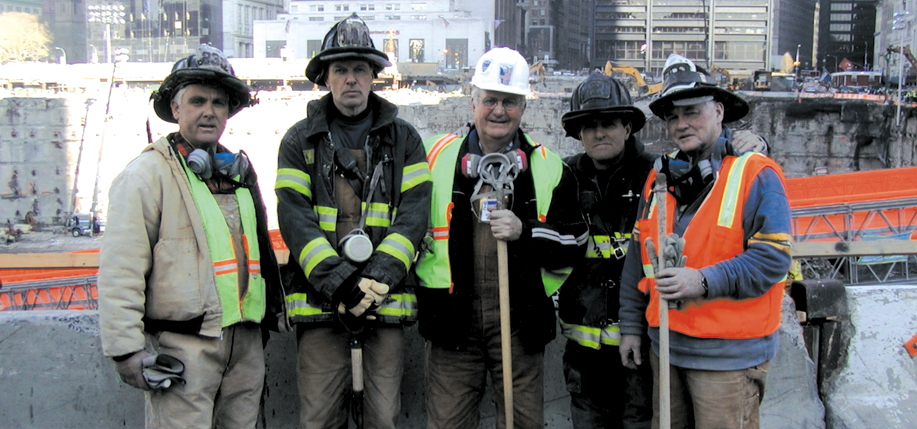
Leave a Reply